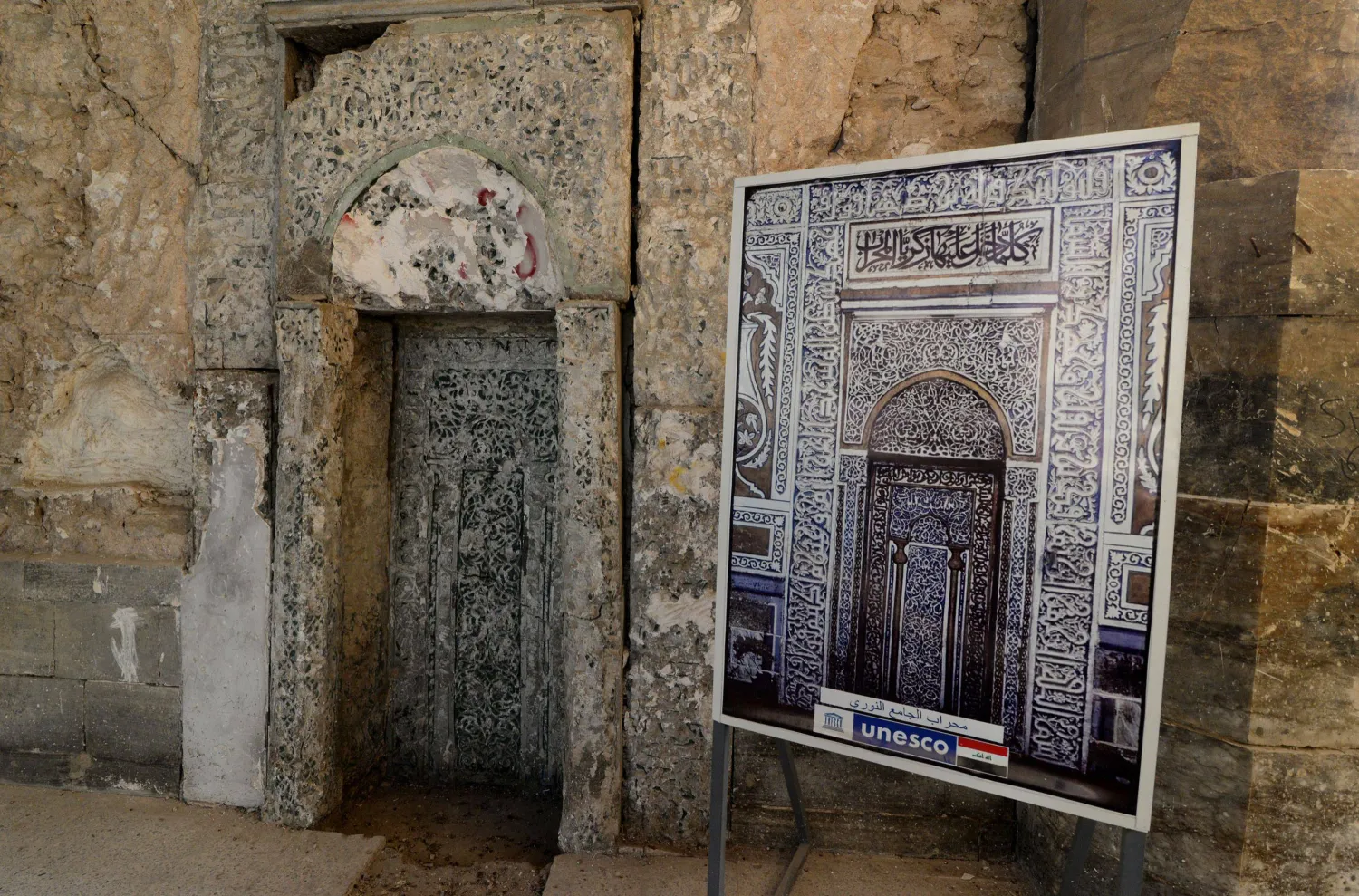A United Nations agency said it has discovered five bombs in a wall of Mosul's iconic Al-Nuri mosque, planted years ago by ISIS militants, during restoration work in the northern Iraqi city.
Five "large-scale explosive devices, designed to trigger a massive destruction of the site," were found in the southern wall of the prayer hall on Tuesday by the UNESCO team working at the site, a representative for the agency told AFP late Friday.
Mosul's Al-Nuri mosque and the adjacent leaning minaret nicknamed Al-Hadba or the "hunchback", which dates from the 12th century, were destroyed during the battle to retake the city from ISIS.
Iraq's army accused ISIS, which occupied Mosul for three years, of planting explosives at the site and blowing it up.
UNESCO, the UN cultural agency, has been working to restore the mosque and other architectural heritage sites in the city, much of it reduced to rubble in the battle to retake it in 2017.
"The Iraqi armed forces immediately secured the area and the situation is now fully under control," UNESCO added.
One bomb was removed, but four other 1.5-kilogram devices "remain connected to each other" and are expected to be cleared in the coming days, it said.
"These explosive devices were hidden inside a wall, which was specially rebuilt around them: it explains why they could not be discovered when the site was cleared by Iraqi forces" in 2020, the agency said.
Iraqi General Tahseen al-Khafaji, spokesperson for the Joint Operations Command of various Iraqi forces, confirmed the discovery of "several explosive devices from ISIS militants in Al-Nuri mosque."
He said provincial deminers requested help from the Defense Ministry in Baghdad to defuse the remaining munitions because of their "complex manufacturing".
Construction work has been suspended at the site until the bombs are removed.
It was from Al-Nuri mosque that Abu Bakr Al-Baghdadi, the then-leader of ISIS, proclaimed the establishment of the group's "caliphate" in July 2014.









